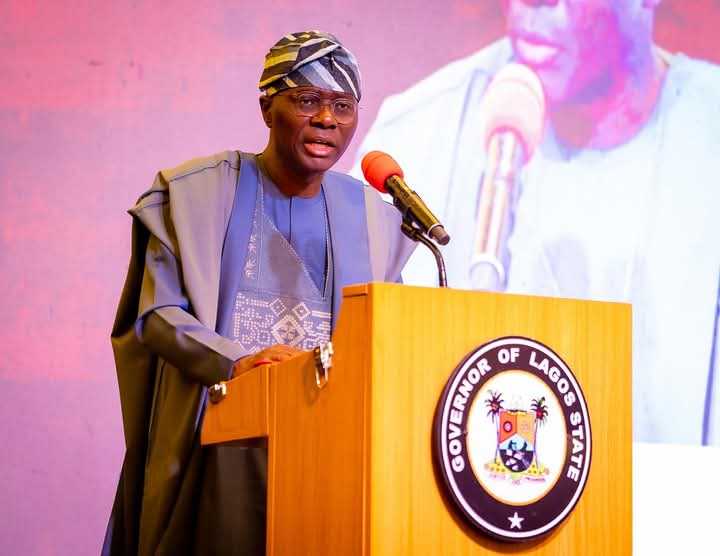The Lagos State Governor, Babajide Sanwo-Olu, has emphasized the urgent need for visionary policies, strong community engagement, and sustained political will to drive success in Nigeria’s transportation sector.
Sanwo-Olu made the call on Thursday during the second edition of the Global Transport Policy (GTP) Intermodal Transport System Annual Roundtable, held in Lagos. The event was themed: “Sustainable Transport Systems: Global Best Practices and Lessons for Nigeria.”
Represented by Dr. Abimbola Akinajo, Managing Director of the Lagos Metropolitan Area Transport Authority (LAMATA), the Governor noted that global cities like Singapore, Tokyo, Seoul, Amsterdam, and Copenhagen achieved transport success by reimagining mobility and implementing forward-thinking policies.
“Copenhagen has cultivated a cycling-first culture supported by robust infrastructure and safety systems. Singapore has leveraged technology and integrated land-use planning to optimize urban movement. Bogotá transformed public transport with affordable Bus Rapid Transit (BRT) systems, while Tokyo and Seoul operate high-density, reliable metro systems that move millions with precision. Amsterdam has normalized multimodal transport with ferries, trams, bicycles, and electric buses,” he said.
Sanwo-Olu said that Lagos is actively adopting these global lessons through LAMATA by building a multimodal, future-oriented, and inclusive transportation ecosystem. The agency’s blueprint aims to integrate roads, railways, ferries, and walkways into a seamless network.
He stressed the importance of depoliticizing infrastructure development and ensuring continuity beyond electoral cycles. “Transport infrastructure is a long-term investment. We must ensure that national and state plans are consistent, resilient, and environmentally responsible. This includes reducing emissions, investing in electric mobility, and protecting vulnerable populations,” he added.
Dr. Frederic Oladeinde, former Lagos State Commissioner for Transport and Principal Consultant at Frederic Oladeinde Consultancy Services Ltd., highlighted Nigeria’s critical juncture. With cities like Lagos, Abuja, Port Harcourt, and Kano expanding rapidly and population projections exceeding 400 million by 2050, he warned that failure to reform could hinder economic and social stability.
He recommended strengthening transport institutions across all levels, prioritizing public and non-motorized transport, and adopting innovative financing models such as public-private partnerships, land value capture, and congestion charges.
“Digital tools can revolutionize the sector,” Oladeinde said, urging adoption of smart fare systems, real-time traffic monitoring, and digital journey planners to enhance commuter experience and operational efficiency.
He also called for cities to be designed with transport at the core, emphasizing compact and well-connected urban planning over sprawling, car-dependent development.
“The future of transport in Nigeria will be determined by the actions we take today. We don’t need to reinvent the wheel—proven models already exist. What’s needed is the courage and commitment to adapt them effectively,” he said.
Earlier, Dr. Oluwasegun Musa, Chairman of GTP, underscored the vital role of efficient transport systems in national development. He noted that Nigeria faces major infrastructure challenges—such as congestion, pollution, and safety—and urged the adoption of global best practices.
Musa estimated that the country needs to invest about $3 billion annually to meet growing transportation demands, adding that sustainable transport investments could stimulate job creation, economic growth, and improved quality of life.
He concluded by urging the Federal Government to demonstrate unwavering political will in addressing the pressing challenges facing Nigeria’s transport sector.

